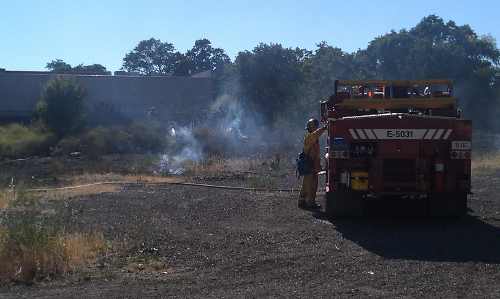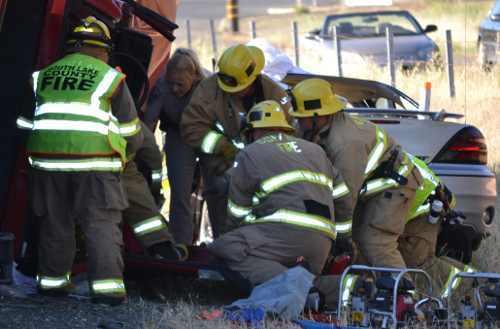- Lake County News reports
- Posted On
Contractors State License Board warns consumers about illegal and deceptive Internet advertisements
Excessive illegal and deceptive ads on popular Internet bulletin board sites like Craigslist have prompted the California Contractors State License Board (CSLB) – joined by contracting boards from Arizona, Nevada and Oregon, as well as the National Association of State Contractors Licensing Agencies (NASCLA) – to issue a nationwide consumer alert.
The agencies are warning consumers that if they use Craigslist or other similar Web sites to find a contractor, they face a real risk of hiring someone whose only goal is to rip them off.
This unusual step is being taken because of the growing problem around the country that Craigslist has not adequately addressed.
“Craigslist serves as a valuable tool to legitimately licensed and insured contractors, offering them a free advertising vehicle to connect with consumers,” said CSLB Registrar Steve Sands. “Unfortunately, hundreds, if not thousands, of unlicensed or unscrupulous contractors are breaking the law every day by posting deceptive or illegal ads, and Craigslist has done little to address the issue.”
In addition, allowing these illegal and deceptive ads to be posted unfettered creates an unleveled playing field, where legitimately licensed and insured contractors cannot compete and consumers are led to believe they’re hiring licensed professionals.
To illustrate the seriousness of the problem, simultaneous enforcement operations were conducted last week in California, Arizona, Nevada and Oregon, using Craigslist ads as a basis to identify suspects.
In California, undercover sting operations conducted in eight different cities led to the arrest of 100 suspects. Three-quarters were identified from Craigslist ads. One suspect is a convicted murderer; two others are registered sex offenders.
All suspects now face a variety of misdemeanor charges, including contracting without a license and illegal advertising.
In Arizona, a sting operation conducted by the Registrar of Contractors resulted in 15 investigations into unlicensed contracting.
The Nevada State Contractors Board (NSCB) conducted three undercover sting operations, with 23 citations issued to Craigslist advertisers for advertising in trades without the appropriate state license.
Oregon’s Construction Contractors Board (CCB) staged two sting houses that resulted in 16 individuals being citing for bidding and advertising violations.
The issue of illegal online advertising isn’t new. CSLB addressed the problem with Craigslist in 2006 and 2007.
As a result, Craigslist has a link at the top of its “Skilled Trade Services” page to license information and to the California Department of Consumer Affairs Web site. The company also added an additional step into the ad posting process that requires the user to indicate whether they are licensed.
Regrettably, unlicensed operators quickly found a way around the requirement and now the process is virtually useless. CSLB said it has been unsuccessful in getting Craigslist to address these concerns.
“We have two goals with this consumer alert,” added Sands. “First, we want consumers be aware of potential pitfalls with these bulletin board ads and to know the questions they need to ask before hiring any type of contractor. Second, we want to work with Craigslist and any other Web site that offers online ads, to make sure the ads are legal and don’t mislead or deceive consumers.”
CSLB’s enforcement operations combine forces with other state agencies, and have bipartisan support from the state legislature. “It is important that consumers who hire unlicensed contractors truly understand their own liability,” said Assemblymember Bill Berryhill, R-Stockton.
“I applaud the work of CSLB to protect California consumers and to crack down on the underground economy,” said Assemblymember Bill Monning, D-Carmel. “These citations and arrests protect not only consumers, but also law-abiding contractors who cannot compete and are going out of business.”
“Joining with three other western states in conducting this unlicensed contractor sting was an historic event,” said Arizona Registrar of Contractors Director William Mundell. “This combined effort demonstrates our shared commitment to protecting honest people from the harm caused by unlicensed contractors.”
“Contracting without a contractor’s license is a serious offense, which ultimately increases a homeowner’s risk and liability when having work performed on their home,” said Nevada State Contractors Board Executive Officer Margi A. Grein. “The opportunity to team up with other states to educate consumers on ways to protect themselves and demonstrate a unified zero-tolerance stance on the issue is invaluable and one that we hope to initiate again in the future.”
“Oregon’s commitment to protect consumers and level the playing field for legitimate contractors is a critical agency mission,” said Oregon CCB Administrator Craig P. Smith. “Being united with other states helps build public confidence and trust.”
The alert is being expanded nationwide by NASCLA, an association of state and local contractor licensing agencies, construction firms, construction trade associations and others associated with the construction industry.
“Non-licensed contractors are a danger to consumers across the nation and give the construction industry a black eye,” said Craig P. Smith, 2011-2012 NASCLA President. “NASCLA congratulates the fine work of the state investigators that participated in this enforcement effort.”
CSLB urges California consumers to follow these tips before hiring anyone to work in or around their home or business:
- Look for the contractor’s state license number. California law requires it to be in all forms of advertising.
- If the contractor doesn’t have a state license, the ad must state that fact.
- In California, unlicensed people cannot take jobs valued at $500 or more (combined labor and materials).
- Don’t be misled by unlicensed contractors who give you a business or “handyman” license number.
- Before you call anyone for a bid, check the license number on CSLB’s Web site at www.cslb.ca.gov or www.CheckTheLicenseFirst.com to make sure the license is in good standing, and that there is workers’ compensation insurance coverage for employees.
- Contractors are required to have their plastic pocket license or Home Improvement Salesperson registration card with them. Ask to see it when getting your bid.
- Ask to see a photo ID to verify the person’s identity.
- Get at least three bids, check references and previous work, and get a detailed written contract.
- Don’t pay more than 10 percent or $1,000, whichever is less, as a down payment.
- Don’t pay in cash, and don’t let payments get ahead of the work.
More information and publications about hiring contractors are available on the CSLB Web site or by calling 800-321-CSLB (2752). You can also sign up for CSLB email alerts.












